Have you ever heard the theory that most drivers would likely fail the driver’s test if they had to take it today? Why is that? Because they’ve forgotten the rules of driving and have developed bad habits. The same can be said about oral hygiene. Although you don’t need a license to brush and floss, over the years we tend to forget the rules and develop bad habits that interfere with proper oral care regimes, which can then have an impact on your overall health. Here we look at those common oral hygiene mistakes according to dentists.
Common Oral Hygiene Mistakes To Avoid
Skipping The Night Brushing
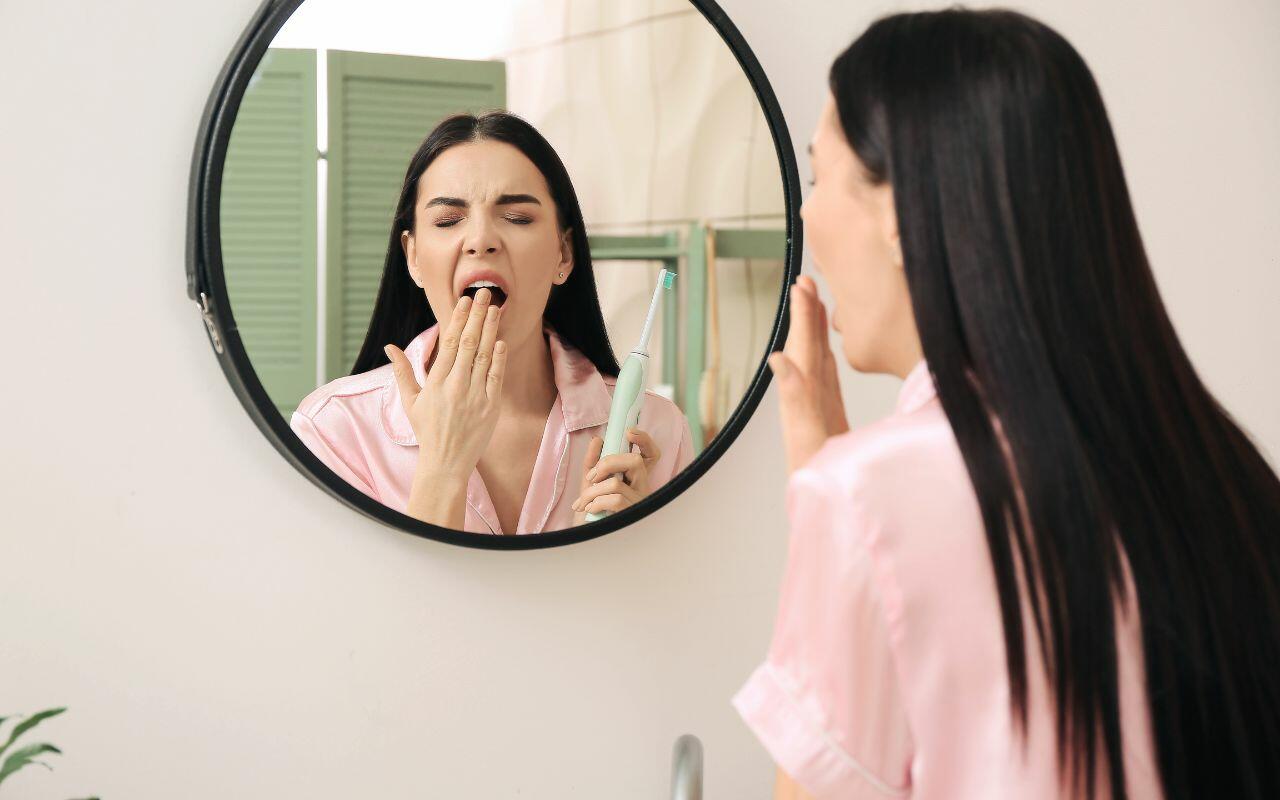
Because morning breath is an incentive to brush your teeth in the morning, it’s not likely you’ll skip this daily ritual. However, for some reason, many people skip their nightly brushing out of laziness or simply being too tired to bother. But there’s a reason everyone (kids included) should have to pass the fresh breath test at bedtime.
Your nightly tooth brushing removes all that food debris you’ve accumulated throughout the day. When this debris is allowed to sit in your mouth longer than 12 hours, it turns into a substance called materia alba. Alba is easier to remove than plaque, but when left on your teeth forms colonies of bacteria that can lead to cavities. Brushing removes the bacteria.
Also, sleeping with even tiny traces of food in your mouth allows those particles to just sit there all night, as you don’t produce enough saliva while sleeping to wash it away. As a result, you create the perfect storm of bacteria and debris that secretes acids which cause tooth decay. As dentists, we consider skipping night brushing a deal-breaker when it comes to proper oral hygiene.
Aggressive Brushing
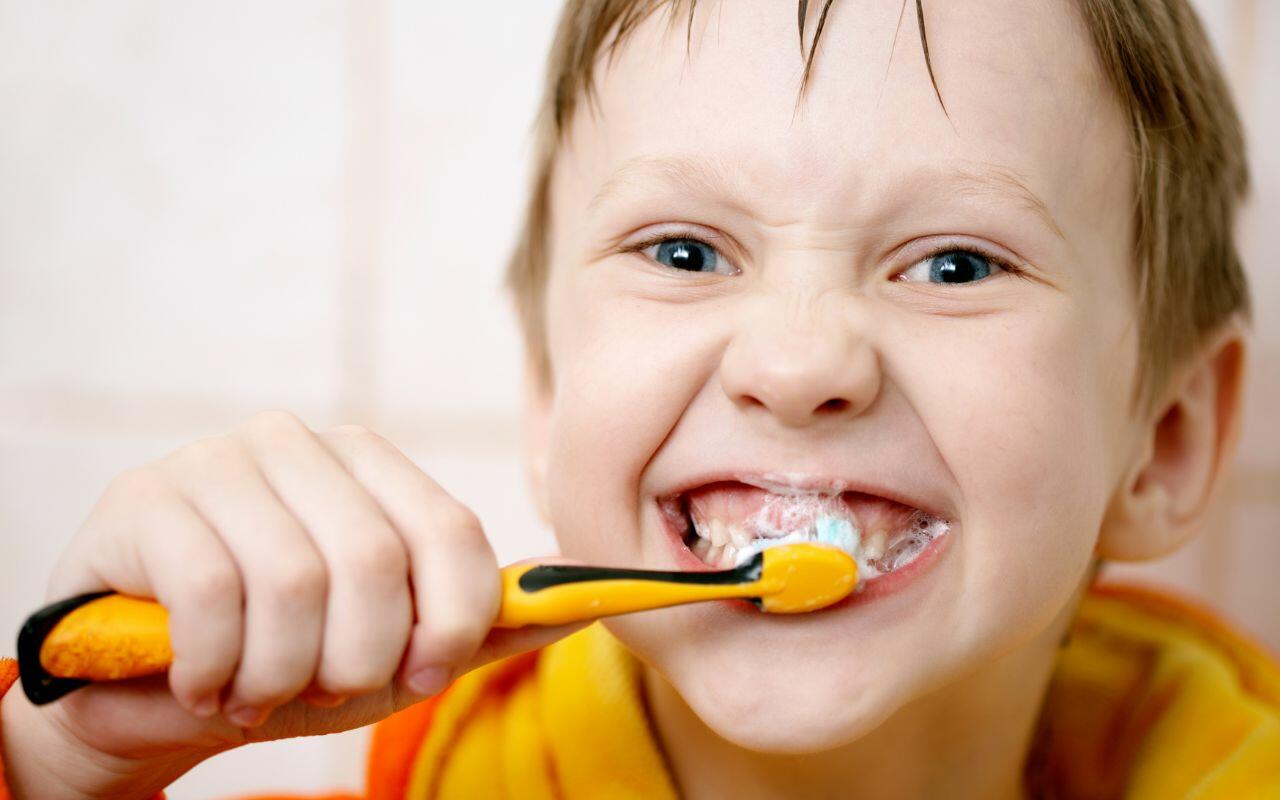
Let’s first say we appreciate the added effort our patients put into brushing their teeth. Unfortunately, when you go at the plaque on your teeth too aggressively, you’re causing more harm than good. Brushing your teeth too hard is one of the most common oral hygiene mistakes, leading to enamel abrasion, gum recession, and sensitivity. Always use a soft-bristled toothbrush or, better yet, an electric toothbrush to avoid damage.
When using an electric toothbrush, don’t push hard, and when using an old-school toothbrush, use gentle motions. Always brush at a 45-degree angle where your teeth and gums meet, brushing away from the gums instead of into them. Adding some circular motions instead of scrubbing helps catch the plaque but reduces the risk of gum recession. Also, change your toothbrush every three months, as aggressive brushing flattens out the bristles, which can cause even more damage.
Quick Brushing

Brushing your teeth twice a day is less effective if you only do it for a few seconds. When it comes to oral hygiene dos and don’ts, do commit to a full two minutes, morning and night, so you can actually remove the biofilms and plaque on your teeth surfaces. Don’t brush for less than a good 15 seconds for every tooth or you won’t do any good. Either use a power toothbrush with a timer or set your phone timer to two minutes while you brush.
Mouthwash INSTEAD Of Flossing
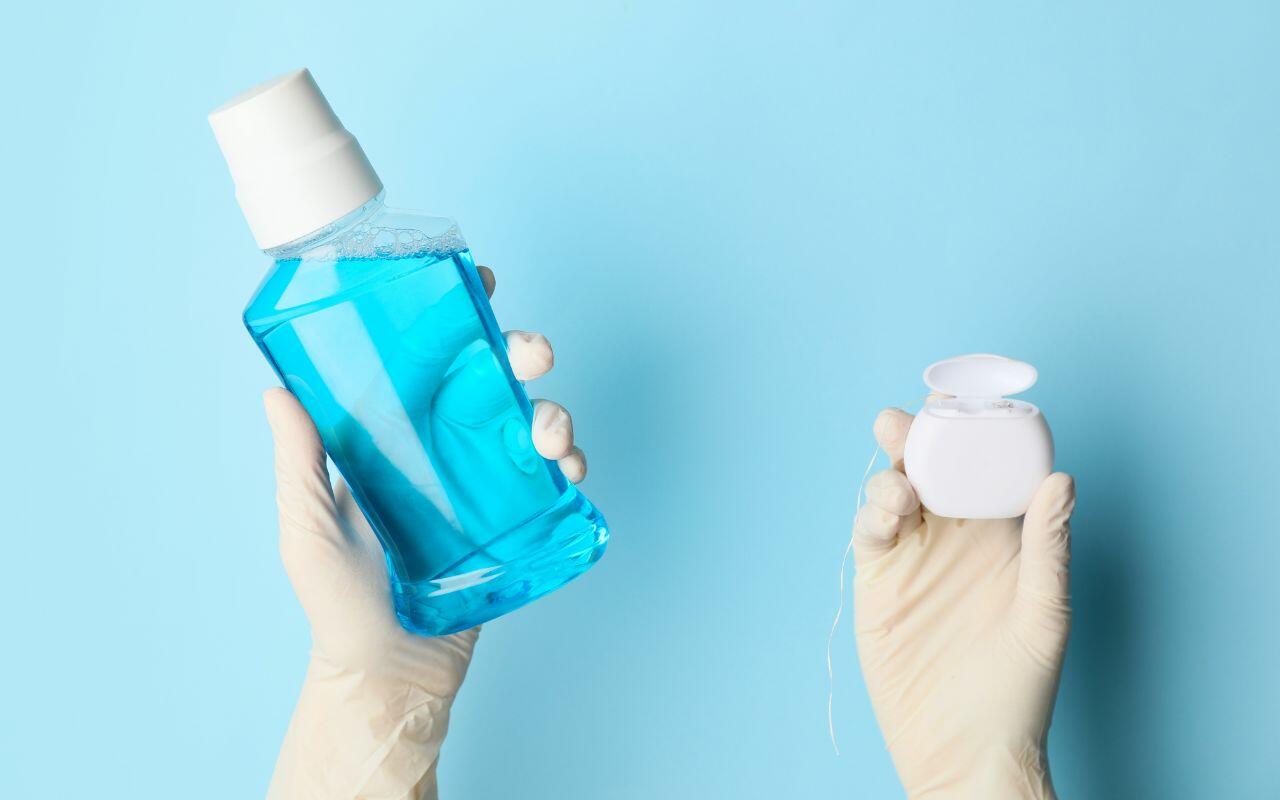
We get it. Mouthwash is the perfect finish to your morning and evening oral hygiene regime. It rinses away debris and bacteria, but it ain’t flossing. One of the most frustrating oral hygiene mistakes dentists say to avoid is using mouthwash instead of flossing. Flossing has a very specific purpose which is to remove plaque from those difficult-to-reach spots between your teeth. So, although mouthwash disinfects and rinses, it won’t remove that plaque. If the thought of flossing makes you gag, use a water flosser. It’s kind of like mouthwash with a rinsing effect, but the wand allows you to target debris in hard-to-reach spaces.
Floss Picks Instead Of String
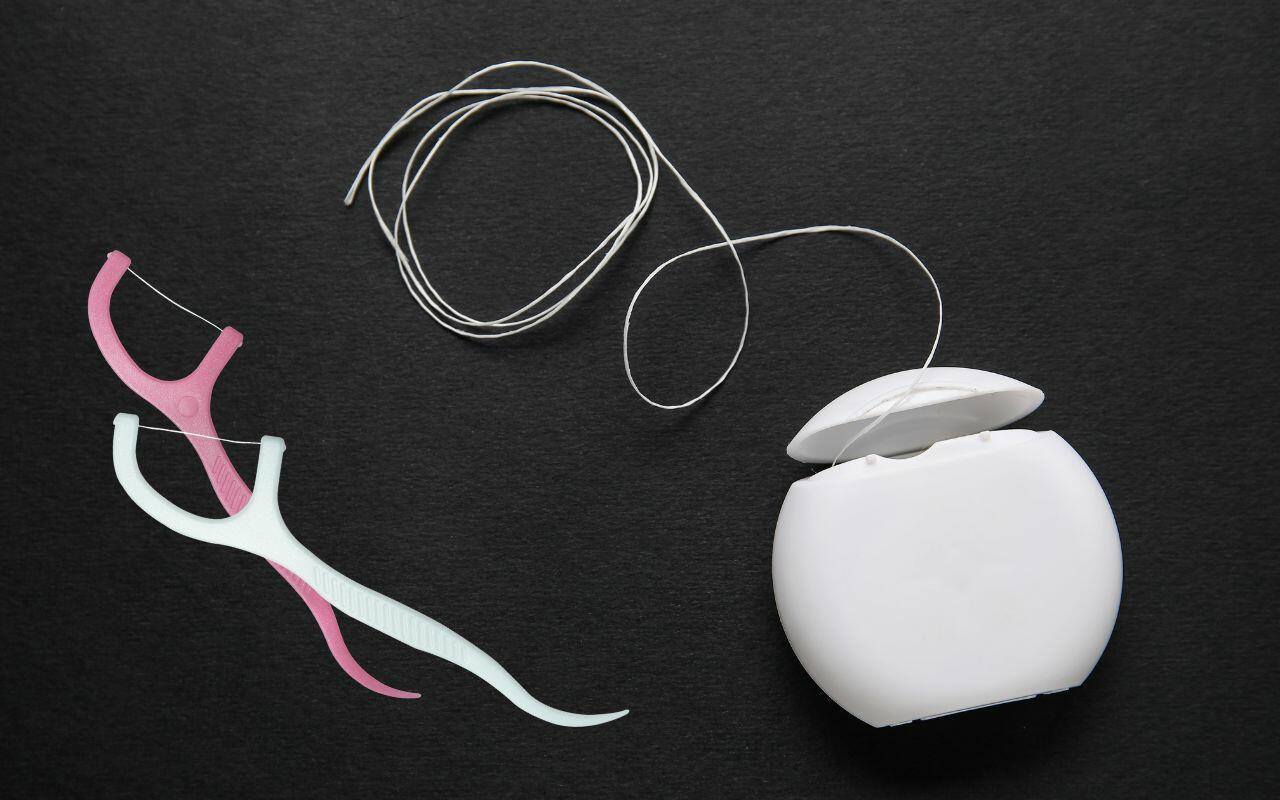
This is a combo mistake. Floss picks do work, but they have two issues: You probably aren’t flossing properly with them because they don’t provide that back-and-forth and up-and-down motion to do a good enough job to remove plaque. Next, because you’re using the same short area of floss or the end of the pick for your entire mouth, you can actually transfer bacteria from a less healthy tooth to a healthy tooth.
Proper flossing requires a really long piece of string that allows you to adjust the string to a “fresh spot” as you move to the next tooth. If you ever watch your hygienist flossing your teeth, you’ll notice this is how they do it. With a bit of a back-and-forth and side-to-side motion, you get at all the hidden gunk. You can also use a water flosser to do a thorough job.
Avoiding Flossing Due To Bleeding Gums
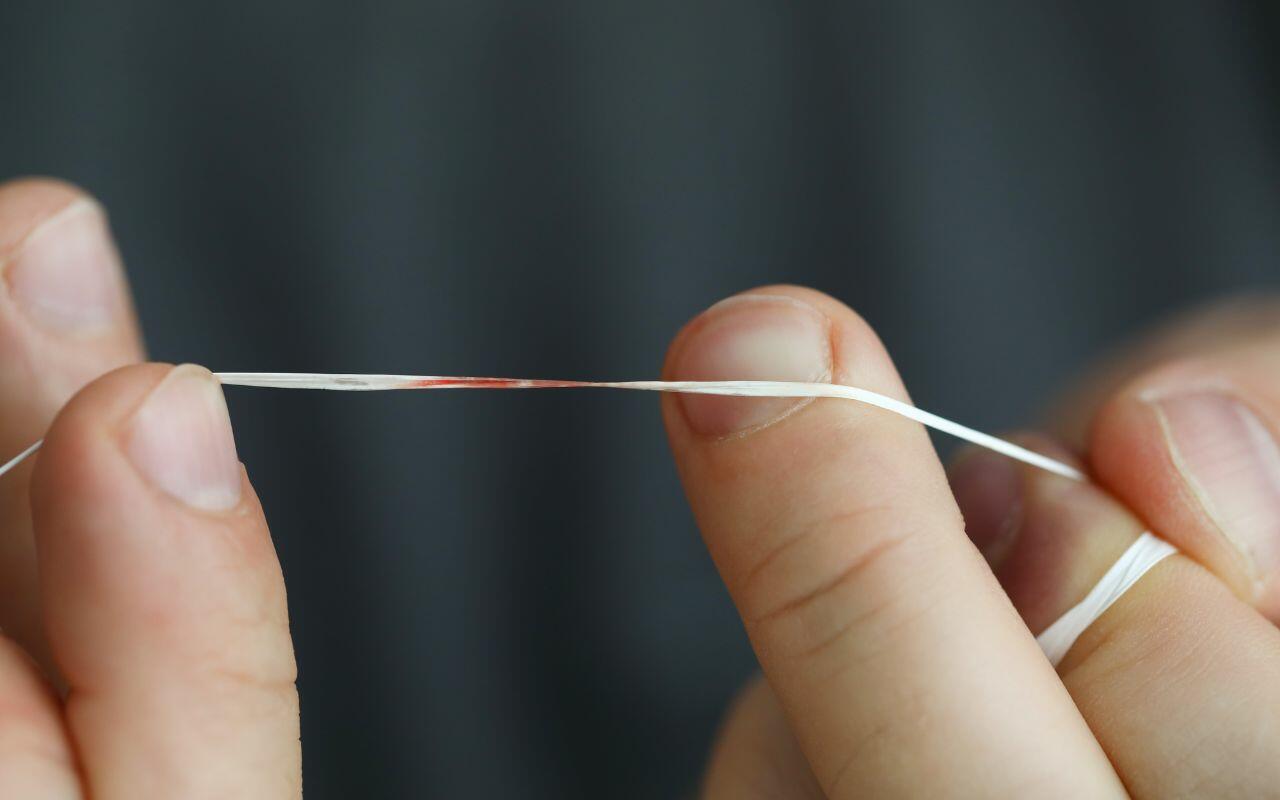
Seeing blood on floss can be a bit of a shock. As a result, you might think you are causing damage and stop flossing. However, blood is a sign you’re not flossing enough. You’ll be surprised how quickly you can put a stop to bleeding by sticking to your flossing regime. As you remove more plaque, you’ll remove the culprit causing the bleeding, and soon you won’t be seeing any blood at all. That said, if you continue flossing for a week and you experience pain or the bleeding continues, call your dentist, as you likely have gum disease.
Using The Wrong Toothpaste
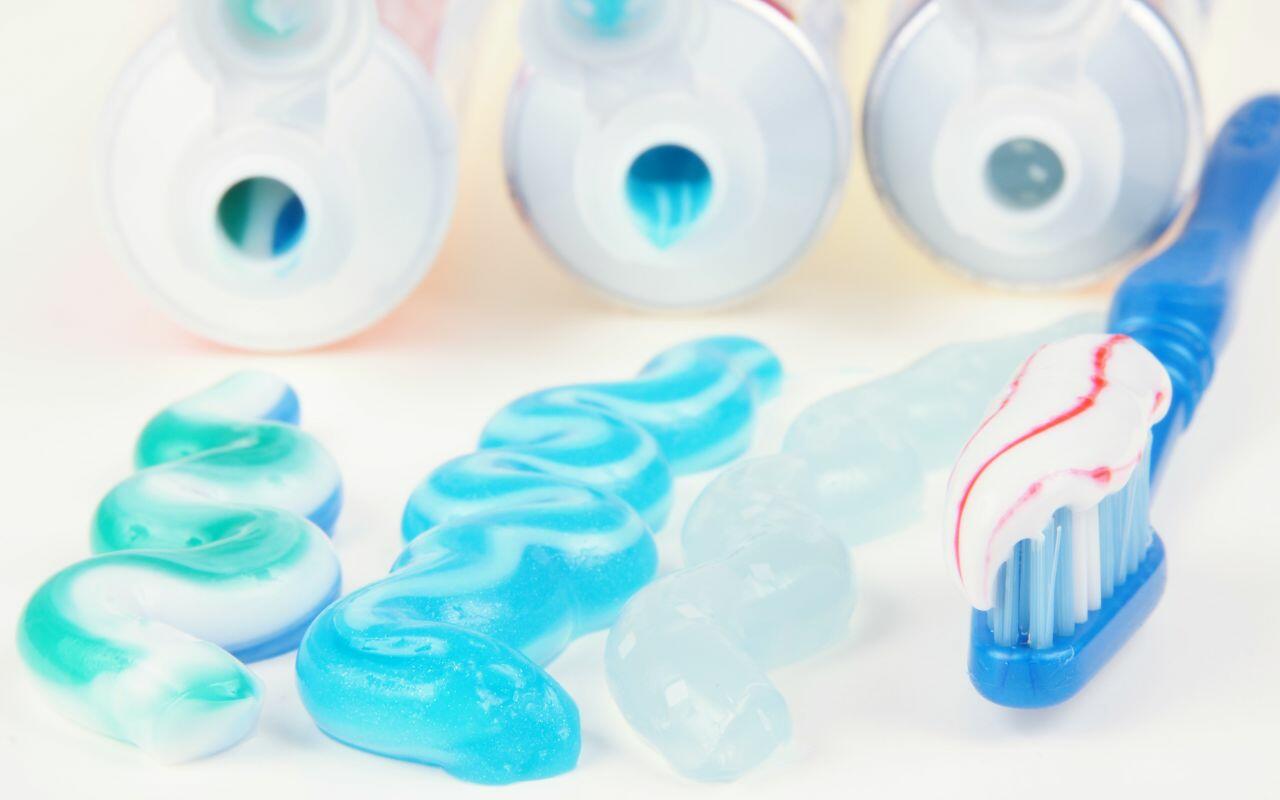
Although most toothpaste today contains fluoride, the quality of toothpaste has an impact on its effectiveness. Look for the word fluoride and the Canadian Dental Association (CDA) stamp of approval on the box. This tells you it has passed the quality tests and that the ingredients required to provide therapeutic benefits meet the CDA’s standards. Also, your dentist might recommend a certain brand or type of toothpaste based on your needs. Always follow their recommendations, as they will optimize your dental hygiene regime.
Using Over-The-Counter Whitening Products

Although there are some perfectly acceptable whitening products available at your local drugstore, they can present issues if not used properly. First, they can increase or cause tooth sensitivity. Second, if not applied evenly, you can create a striped or inconsistent tooth colour. Last, they don’t have the same strength as dental treatments, so can only provide mediocre results. Also, if you choose something that is not CDA-approved, you could run into issues as they haven’t been properly tested. So, if you must use over-the-counter whiteners, look for the CDA seal.
Using Your Dentist Only To Treat Pain
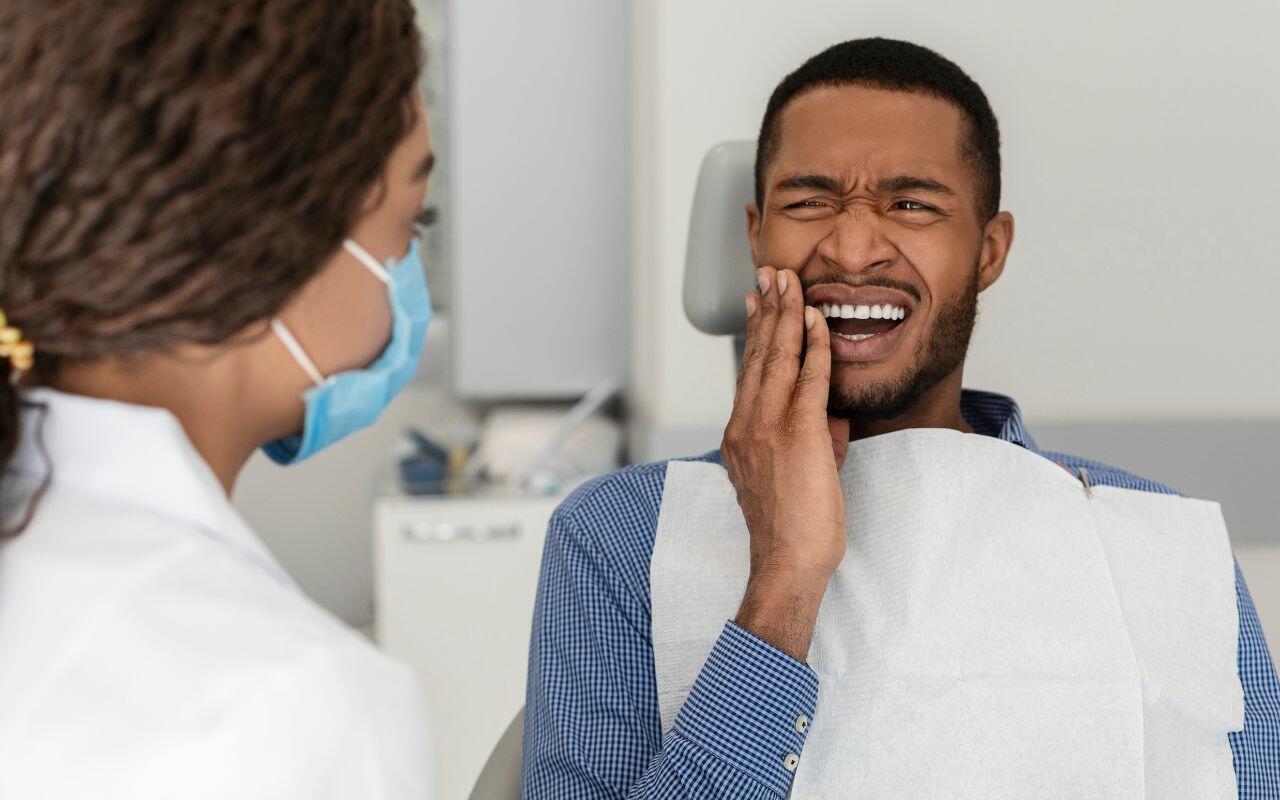
Of course, you should call your dentist when you experience pain. However, the mistake is only visiting your dentist when you’re in pain. You should visit your dentist twice a year for regular dental checkups so you can avoid the issues that cause pain in the first place.
Discuss the mistakes people make in their oral hygiene with your dentist or hygienist at your next dental checkup to see if any of them apply to you, so that you can optimize your home oral care routine.
Call today at 905-775-5307 to talk to us about improving your dental hygiene regimen, or click here to request an appointment.
